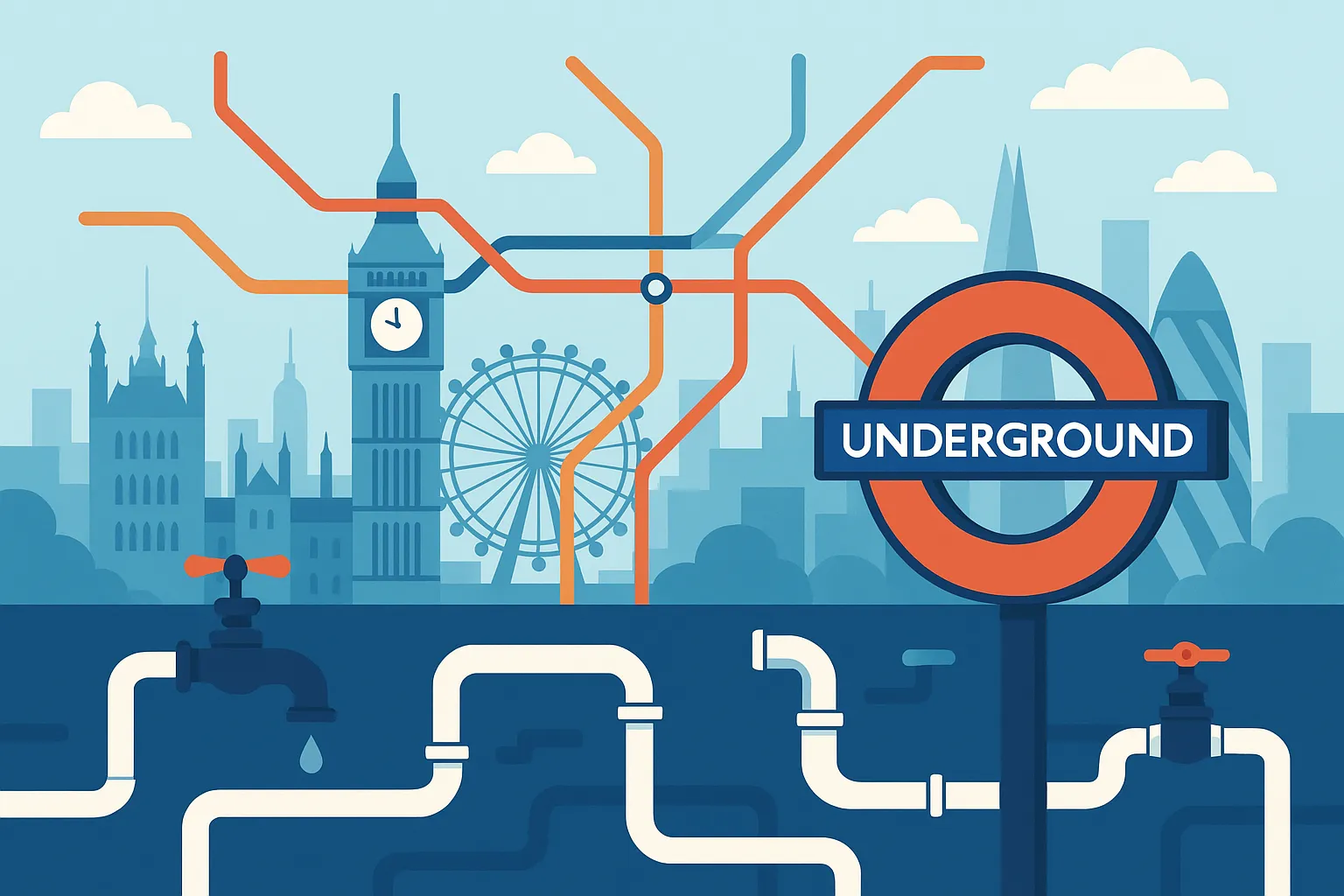Early detection of plumbing problems can save you thousands of pounds in repairs and prevent water damage to your property. Here are the five most common issues homeowners face and how to spot them before they escalate.
Leaking Pipes and Joints
What to look for: Water stains on walls or ceilings, damp patches, musty odors, or unexplained increases in water bills.
Early warning signs: Small water marks that appear and disappear, slight discoloration around pipe joints, or hearing water running when no taps are on. Check under sinks, around toilets, and near water heaters monthly.
Blocked Drains and Sewers
What to look for: Slow-draining water, gurgling sounds, bad odors from drains, or water backing up in sinks or toilets.
Early warning signs: Water taking longer than usual to drain, slight gurgling noises, or soap scum building up more quickly than normal. Hair, grease, and foreign objects are common culprits.
Dropping Water Pressure
What to look for: Weak water flow from taps or showers, inconsistent pressure between different fixtures, or sputtering when you first turn on a tap.
Early warning signs: Gradually decreasing flow over time, mineral buildup on showerheads or tap aerators, or pressure that varies throughout the day. This could indicate pipe corrosion or hidden leaks.
Running Toilets and Faulty Mechanisms
What to look for: Continuous running water sounds, toilet handle that needs jiggling, or water level that is too high or low in the cistern.
Early warning signs: Occasional phantom flushes, handle becoming sticky or loose, or having to hold the handle down to complete a flush. A running toilet can waste up to 200 gallons per day.
Water Heater Problems
What to look for: Inconsistent water temperature, rusty or discolored water, strange noises from the heater, or water pooling around the unit.
Early warning signs: Taking longer to heat water, slight temperature fluctuations, or occasional rumbling sounds. These issues often worsen gradually before complete failure.
Prevention Tips
- Perform monthly visual inspections of visible pipes and fixtures
- Monitor your water bill for unexplained increases
- Test water pressure regularly from different taps
- Keep drains clear by avoiding grease and hair buildup
- Know the location of your main water shut-off valve
- Schedule annual plumbing inspections
When to Call a Professional
While some minor issues can be DIY fixes, call a professional plumber immediately if you notice multiple problems occurring simultaneously, water damage to walls or floors, complete loss of water pressure, or sewage backup. Early professional intervention often costs significantly less than emergency repairs.
